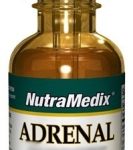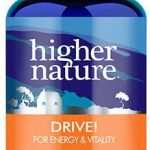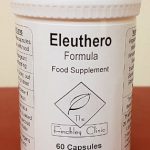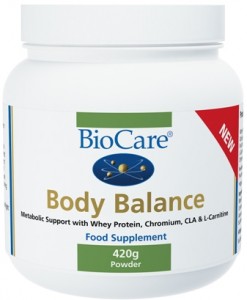The adrenal glands are located on top of the kidneys and play a critical role in the production of a multitude of hormones in your body. The adrenals comprise the endocrine system and are responsible for activating your stress response and regulating adrenaline and cortisol, which aid in energy and sleep; the adrenals also have a part in the reproductive process. Imbalance of the adrenal system is problematic to health and ranges from mild disorders, such as adrenal fatigue, to life-threatening conditions such as Addison’s disease. Too much or too little adrenal hormone production results in various symptoms including fatigue, weakness and digestive disturbance. Restoring adrenal health involves proper diagnosis, medical intervention and lifestyle changes.
Diagnosis
First up, you’re highly advised to get yourself checked out with a local GP so, should you be suffering from something serious, you can receive a physical examination, be diagnosed and the steps taken by medical professionals, as necessary. It’s possible that a physician may order an adrenocorticotropin simulation test, as well as a corticotropin-releasing hormone test; together these would be taken to determine the cortisone levels in your body and to discover whether yours are too high or too low, depending on whether the pituitary gland is secreting the right amounts of this all-important and highly influential hormone. You may be subjected to blood-hormone-level tests, ultrasounds and x-rays too; the results of which would also reveal whether your may require medical treatment in addition, no doubt, to lifestyle changes to normalise your adrenal function.
Diet
For sure, in the case of poor adrenal health, one of the lifestyle changes you’ll be strongly urged to make will be to your everyday diet. So, within this, what changes would be on the menu, so to speak? Well, there’s a good chance you’ll be advised to focus not just on specific foods but to eat according to a daily schedule, so you can maintain decent energy levels throughout the day. This would be to keep up blood sugar levels during your waking hours; should you miss meals, for instance, your blood sugar levels will drop off and put unavoidable stress on the body’s adrenal glands.
To wit, it may well be suggested for you to consume three sensibly balanced, evenly and regularly spaced meals during the day, as well as two snack-times in between them. Food-wise, the emphasis would be on natural sugar sources rich in adrenal health vitamins (all fresh fruits, vegetables and whole grains; saturated fat-heavy, processed foods like cakes, crisps and carbonated drinks would be out).
Rest
Should you find you’re suffering from adrenal-focused issues, or even a serious condition attributable to these glands (possibly in conjunction with thyroid gland problems too), then good, decent rest becomes key, as you’ll be low on energy and in need of restoring energy levels so you don’t wipe yourself out and make yourself even less well.
The advice you’ll likely receive then is to fix a sensible, reliable and very regular sleep schedule (‘sleep hygiene’ now ought to be a focus in your life), as well as small, well observed breaks throughout the working day; you really do have to observe the fact that, for the good of your health, you need to rest more. This may mean taking 15-20-minute lie-downs or, even better, power naps every now and again. It’s not just about relaxation and energy restoration; it’s also all about balancing out the cortisol levels in your body because they’ll have been altered due to the adrenal disorder(s) you’re experiencing.
Exercise
Exercise as well as rest highly advised, not least because it may be you ought to lose. This is because adrenal glands generate excessive amounts of the hormone aldosterone, which can result in the medical issue called hyperaldosteronism. This sees far too much sodium and potassium than the body can handle, inevitably raising your blood pressure. Should you be suffering from adrenal issues that could or have given rise to this condition then, in addition to medical treatment, it’s likely you’ll be advised to engage in light but regular exercise – as well as to try and cut down on your sodium intake, for obvious reasons. Such light exercise as bike-riding, jogging or even walking is usually advised to aid the body’s regulation of cortisol levels when the adrenals aren’t productive enough.
Vitamins and supplements
Finally, the fifth factor that can make a big difference when it comes to combating adrenal problems is the consumption of the right vitamins in the right amounts – and potentially then, supplements. Vitamins are a no-brainer for good adrenal health, frankly; experts suggest consuming lots of fresh fruit, vegetable and good, solid sources of protein are essential on a daily basis to ensure you get all the vitamins you can. For instance, we’re talking the likes of Vitamins C, E and several of the B vitamins (green vegetables and citrus fruits) and protein sources for the B vitamins and the crucial nutrients that are iron and selenium.
Of course, though, there is the possible likelihood that, owing to necessary restrictions you have to make to your diet, you’re not able to tailor it exactly as you’d like. In terms of sources of vitamins, minerals and other nutrients for improved adrenal health, then you can turn to fully naturally-derived supplements for these adrenal health vitamins and more. The following adrenal health supplements are all available through us at The Finchley Clinic (why not take a look at our specific ‘Adrenal Health’ page to check out more?):
 Nutramedix Adrenal Support – a proprietary blend of extracts from five adaptogenic plants (schisandra, astragalus, snow rose, ginseng and rhodiola), which combine in supplementary form help maintain healthy adrenal function.
Nutramedix Adrenal Support – a proprietary blend of extracts from five adaptogenic plants (schisandra, astragalus, snow rose, ginseng and rhodiola), which combine in supplementary form help maintain healthy adrenal function.
 Drive! (180 capsules) – consists of Tyrosine with supportive co-nutrients which provide important co-factors for improved energy, balanced brain chemistry, combatting depression, and supporting the adrenal and thyroid glands.
Drive! (180 capsules) – consists of Tyrosine with supportive co-nutrients which provide important co-factors for improved energy, balanced brain chemistry, combatting depression, and supporting the adrenal and thyroid glands.
 Eleuthro Formula – a powerful tonic and rebuilding effect on the adrenal glands, which is designed for super-sensitive people who want to avoid the more stimulating herbs and/ or licorice.
Eleuthro Formula – a powerful tonic and rebuilding effect on the adrenal glands, which is designed for super-sensitive people who want to avoid the more stimulating herbs and/ or licorice.

